Three Setbacks for autocracies (but they’re fighting back)
Istanbul, Turkey
This city, Turkey’s most important despite not being the capital, has long been a center of resistance to Recep Erdogan’s increasingly autocratic rule. In March this year, the opposition candidate, Ekrem Imamoglu seemed to have won the election by a slight margin, but the government alleged it was too close and scheduled another election for June. This was a major miscalculation by Erdogan, since the result of the June election was an overwhelming victory for Imamoglu.

Ekrem Imamoglu, the new mayor of Istanbul
Erdogan has been running Turkey from 2003 onwards, first as prime minister and then as president from 2014 to the present. During this period, Turkey has grown impressively but also suffered democratic setbacks as Erdogan has sought to consolidate his power to almost dictatorial level and increase the role of religion in the society.
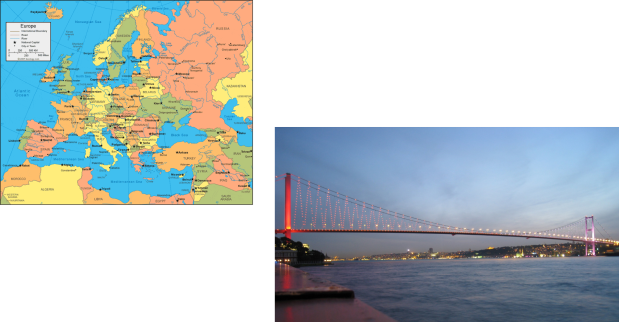
The map shows how Turkey is a bridge between Europe and Asia. In Istanbul itself, there is an actual bridge linking Europe to Asia
After Turkey became a republic in 1923, one of the pillar of the new society was its secularism. This provided a unique role for the country as a bridge between the west and the east, Islam and Christianity, an example that an Islamic country can be democratic. Though it still is essentially democratic, Erdogan has sought to expand his power and has been relentless with his attacks on the press and journalists.
The future of the country is unsure, and it has had increasingly strained relations with the west, insisting on purchasing weapons from Russia and playing an ambiguous role, at leas tfrom the western perspective, in the Middle East conflicts. But the mayoral victory in Istanbul is a sign that the opposition is not completely marginalized.
Moscow, Russia
On June 9th, opposition journalist Ivan Golunov was arrested for among other things, marijuana possession. He had been investigating corruption, a notorious future of Russian life, and this had landed him in deep trouble. In a reaction that few foresaw, the Russian media, normally pliant and loathe to ever criticize President Putin, reacted swiftly to condemn the arrest. Two days later, Golunov was released, in a clear defeat for Putin.
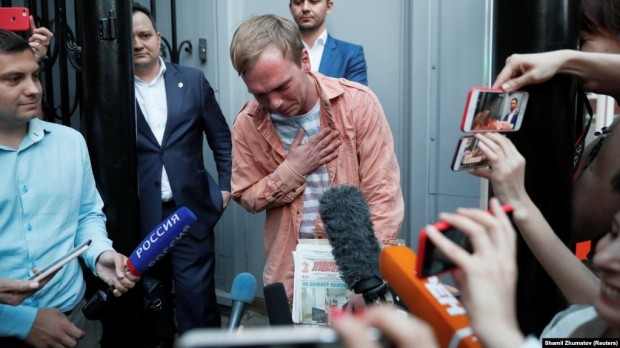
Russian journalist, Ivan Golunov, was released after outcry from even members of the oficial media
Putin first came to power in 2000 and has remained there until today. He remains popular and the general population credit him with having restored Russia’s global preeminence and with it a renewed respect. Many Russians felt that after the collapse of the Soviet Union, Russia was humiliated by a resurgent west that forcibly imposed a kind of casino capitalism and diminished the country’s role in world affairs. Nato’s expansion to include former Soviet Allies such as Poland and the Czech Republic contributed to the paranoia that the west was once again encircling Russia for nefarious purposes.
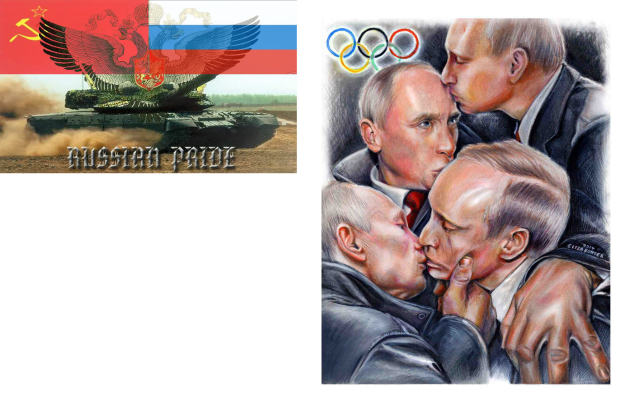
Russia loves Putin, or so the official story goes
Putin reversed this, flexing his muscles abroad and restoring a kind of order at home. The culmination of this new stance was Russia’s annexation of Crimea in the Ukraine in 2014. This resulted in Russia being unceremoniously kicked out of the G-8 and having sanctions imposed against it. In 2016, Russia is alleged to have interfered in the US election which resulted in the victory of Donald Trump.
The release of the journalist may have been a pyrrhic victory as this week hundreds of protestors have been arrested a reassertion of state power and the limits involved in opposing Putin.
Hong Kong, China
Protests in Hong Kong have been going on for the past six weeks and are becoming increasingly violent and the end result could be ominous given China’s intention of bringing the former British colony to heel.
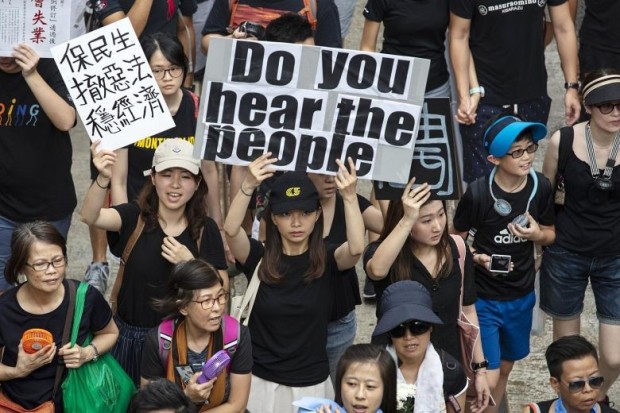
It is not clear if Beijing is listening
The protests started in June, to oppose a law that China wanted the Hong Kong legislature to pass which would give the mainland the power to extradite whom it considers criminals. People in Hong Kong viewed this a clear ploy to thwart any opposition to its policies by subjecting them to Chinese justice, which has an almost 100% conviction rate.
These protests were in fact effective, and China postponed implementation of the law in a clear and rare policy reversal. This did not seem to placate the protesters who continued and even ransacked the local parliament in a clear act of aggression against the regime.
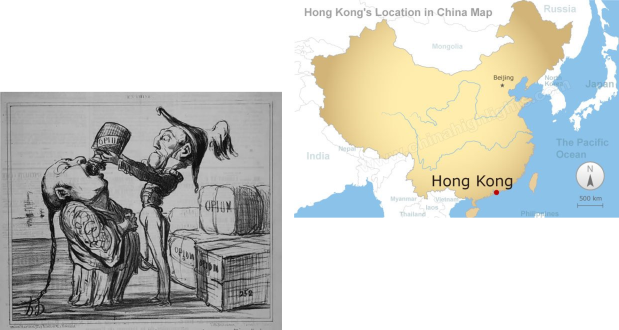
China and Britian have a long, contentious relationship
From 1847 to 1997, Hong Kong was a British colony and administered as such as a result of the British defeat of China in the Opium wars. When power was handed back to China, it was agreed that British-era laws would continue in what was dubbed one country-two system arrangement.
China, being a totalitarian state, was never comfortable with having a part of what it considered its national territory under democratic rule and has been trying and succeeding to limit the powers of the population. This latest move was a catalyst for popular revolt. What will happen next is anybody’s guess.